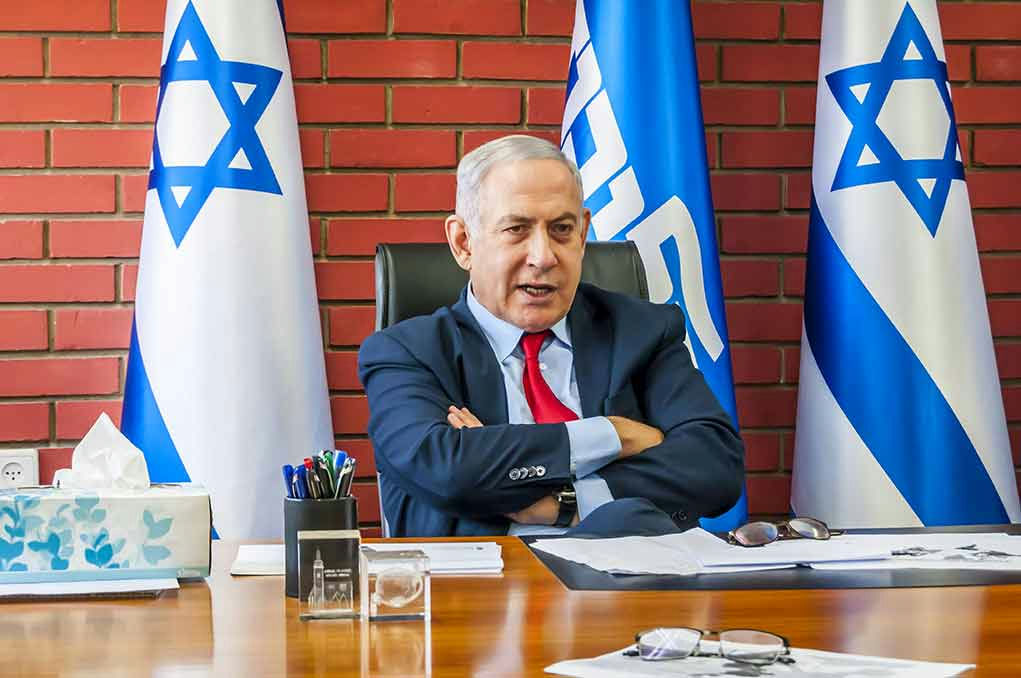A new wave of White House policy is shaking up the U.S.-Israel alliance, exposing deep rifts between President Trump and Prime Minister Netanyahu, and leaving America’s leadership and security priorities at a crossroads.
Trump and Netanyahu: Alliance in Turmoil as U.S. Policy Shifts
President Trump’s return to the Oval Office in 2025 was expected to restore strong U.S.-Israel cooperation. Instead, his administration’s Middle East agenda—prioritizing diplomatic breakthroughs and American interests above traditional alliances—has brought private fury and public friction with Israeli Prime Minister Netanyahu. Trump’s frustration centers on Netanyahu’s perceived self-serving moves, particularly as Israel broke a ceasefire with Hamas in March 2025 and resisted U.S.-driven negotiations that bypassed Jerusalem’s input. This break with precedent has not only rattled Israel’s government but also stirred unease among American conservatives who prioritize strong, consistent foreign alliances and constitutional checks on executive power.
Trump’s policy moves—ending the U.S. bombing campaign in Yemen, lifting sanctions on Syria, and offering Iran a path to a nuclear deal—have further widened the rift with Netanyahu. Despite decades of bipartisan support for Israel, Trump’s willingness to negotiate directly with Hamas and Iran has upended expectations. Netanyahu, facing domestic political turmoil and security threats, has doubled down on military solutions in Gaza and against Iran, sometimes without U.S. approval. These divergent priorities have left U.S.-Israel relations at a historic low, with both leaders prioritizing personal and political gains over their countries’ longstanding alliance.
Personal Rivalry and Political Stakes Overshadow Policy
The Trump-Netanyahu standoff is driven as much by personality as by policy. Both leaders have built careers on projecting strength and loyalty, yet recent events reveal deep mutual suspicion and animosity. Trump has reportedly accused Netanyahu of undermining his legacy and thwarting his diplomatic efforts, while Netanyahu views Trump’s outreach to U.S. adversaries as a threat to Israeli security and his own political survival. Key administration officials—including Secretary of State Marco Rubio and Defense Secretary Pete Hegseth—have sometimes contradicted Trump’s public statements or engaged in independent negotiations, reflecting broader divisions within the U.S. government over how far to distance American policy from Israeli preferences.
Conservative Americans watching these developments are rightfully concerned about the erosion of trust between close allies. The shift raises questions about the future of U.S. strategic partnerships, the balance of power in the executive branch, and the consistency of American foreign policy—especially as adversaries like Iran and Hamas seek to exploit the cracks in the alliance.
Regional Fallout and Conservative Concerns for U.S. Security
These policy shifts have immediate impacts on the ground. The collapse of the Gaza ceasefire, increased Israeli military actions, and stalled negotiations have left civilians in harm’s way and regional tensions on a knife’s edge. Trump’s new approach has emboldened adversaries and unsettled traditional partners, while Netanyahu’s intransigence has stymied U.S.-led peace initiatives. For conservatives, the episode is a powerful reminder of the dangers of personal politics overriding constitutional governance and the risks of abandoning proven alliances in favor of unpredictable diplomatic gambits.
Some Republican lawmakers and conservative analysts have voiced concern that aggressive executive actions—whether negotiating directly with enemies or bypassing Congress on military decisions—may erode the very constitutional safeguards that protect American interests abroad. The fallout also threatens to weaken family values, religious freedoms, and national security, as the U.S. is forced to navigate a more volatile and less predictable Middle East.
Trump Privately Fumes About Netanyahu: 'He's F*cking Me'… (Drudge)
— Eric Smith (@EricSmi19837108) September 18, 2025
Expert observers, including analysts from respected think tanks and former U.S. officials, note that while Trump’s willingness to challenge the status quo may yield some diplomatic openings, it also introduces instability and undermines trust among allies. The long-term implications could include a permanent realignment of U.S. Middle East policy and a diminished role for American leadership on the world stage. For conservatives, the lesson is clear: strong alliances, constitutional checks on executive power, and a principled approach to foreign policy remain critical to safeguarding America’s security and standing in the world.
Sources:
Unpacking the Rift Between Trump and Netanyahu
Netanyahu, Trump & Iran: War and Dangerous Power
Not-so-great expectations: Trump and Netanyahu
Trump-Netanyahu call after Israel strike in Qatar
President Trump welcomes Netanyahu for 2nd White House meeting of this term

